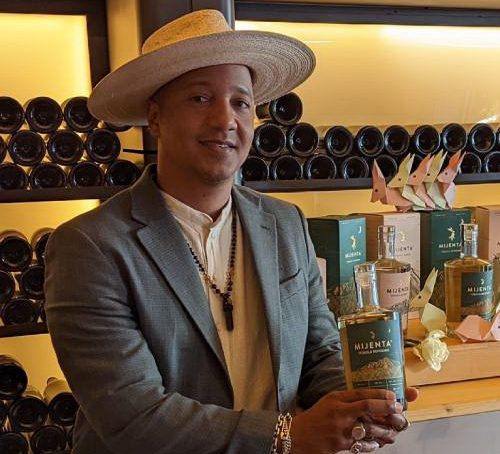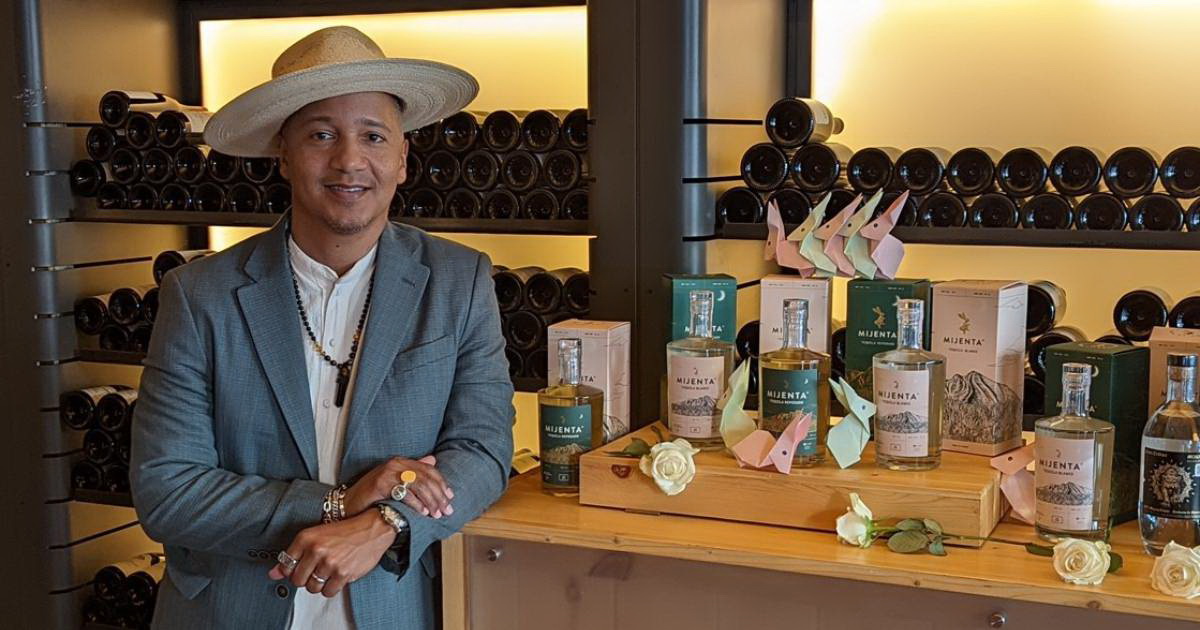Juan Coronado knows a thing or two about running a successful F&B business. With a background in engineering and hospitality experience spanning more than two decades, he not only co-founded a Michelin-star restaurant in Washington DC and coffee-shop chain, he also co-launched an exquisite tequila brand, Mijenta, in 2020. Hospitality News ME attended an exclusive tequila masterclass at Vintage Wines & Spirits, organized by Gabriel Bocti — the official distributor of Mijenta in Sothern Europe, the Middle East and Africa — to chat with Coronado about his journey, his love for tequila and why sustainability is at the heart of everything he does.
What can you tell us about Mijenta?
Mijenta derives from “mi gente,” which means “my people” in Spanish. It’s an ode to the people, the hands of those who work in the tequila industry. Our tequila is made from 100 percent agave. We undertook the task of offering the market a product that is both sustainable and high in quality. As nature stands at the heart of what we do, we have had to be patient and take time to understand the industry inside out. We have worked hard to perfect our product, spending endless hours measuring the soil, sugar levels and so much more. Mijenta cannot be made with four-year-old agave, for instance; our agave is seven to 10 years old and grows on red soil at high elevations.
We were lucky in that we anticipated the tequila wave and had enough time to develop Mijenta into the brand it is today. Our philosophy is to respect the Earth. Sustainability is a priority, so our bottles are made of recycled glass and our packaging from recycled agave leaves; it’s part of everything we do.
How would you describe Mijenta using three adjectives?
Luscious, well-balanced and additive-free.
Do you think your engineering background has helped you succeed in the tequila industry?
Engineering forces you to be inquisitive and look at a problem from all sides until you can crack the code. I believe that this is the best approach to everything in life. We have faced many challenges in producing Mijenta. Competing with large-scale producers in an industry that’s still very protected has been one of them, but I am a natural problem solver and have adapted.
What’s your mantra?
Our motto is: “Por la tierra, por la gente, por la vida.” Mijenta was born out of respect for the land, care for the people and a love for life. We believe in doing the right thing, always.
In your opinion, why has tequila become more popular in recent years?
For a long time, gin and vodka were the king and queen of the bar, and you would only find one tequila brand if you were lucky. Quite simply, the spirit was suffering from an identity crisis; Blancos were flat, light-bodied, filtered and purified. Producers used to remove the nuances of the tequila to create something similar to vodka to appeal to a wider audience. However, traditional tequila is not supposed to be tampered with at all; it is meant to be full-bodied and strong. The red soil, the hints of cocoa and leather, and the big mineral notes are key. They need to be transferred to the glass. Mexico gave us tomatoes, cocoa, corn and peppers, and we are proud that it has given us agave to make tequila and mezcal.
I am very thankful that celebrities like Michael Jordan, Kendal Jenner, George Clooney and others who own or endorse tequila brands are paying the huge marketing budgets to get this fine spirit noticed and talked about. People are curious, and consumers are always looking to try new things. They know good whisky, gin and vodka, and now they are turning their attention to tequila.
Your maestra tequilera, Ana Maria Romera, was instrumental in bringing Mijenta to life. What can you tell us about the role of women in the tequila industry?
Ana Maria is a unicorn. Her standards, particularly when it comes to quality, are by far the highest I have ever seen; all the tequilas she has worked on attest to this.
Concerning the role of women in the tequila industry, there is a common misconception that tequila is a “man’s drink” because it is from Mexico, a country that’s regarded as quite macho — another stereotype. However, what many people don’t know is that 70 percent of the work that goes into making tequila is done by women. If you visit distilleries that produce tequilera and mezcal, you will see that women are behind most of the crucial lab work, chromatography, labeling and so forth. Without this precision and attention to detail, tequila would not be the beautiful, complex and unique spirit that it is.
What does Mijenta pair well with?
I enjoy Mijenta Blanco with cheese, sushi, ceviche and oysters. It even goes well with popcorn, dulce de leche and crème brûlée. I often host tequila dinners when I travel, which is a great way to get industry professionals, chefs, bartenders and consumers curious about the relationship between Mijenta and food.

















